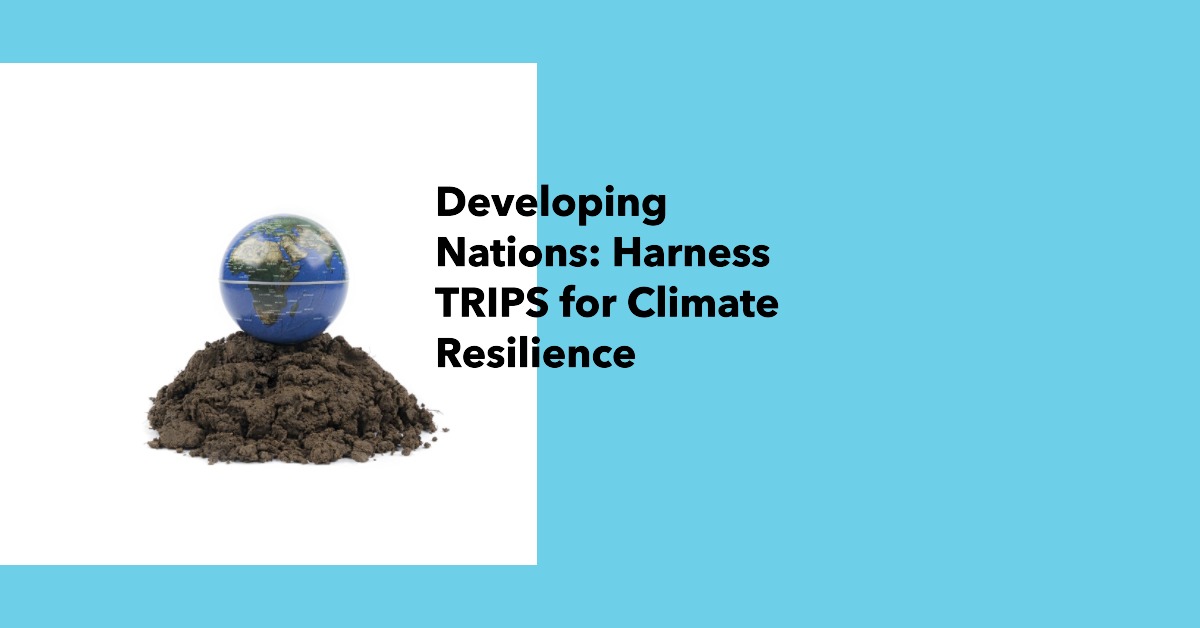WTO Urges Developing Nations to Harness TRIPS Flexibilities in the Face of Climate Crises


TRIPS flexibilities, within the framework of the WTO, provide member countries with the latitude to adopt measures that balance the protection of intellectual property rights with the need to address public health and environmental crises. These flexibilities include the ability to issue compulsory licenses, allowing countries to produce generic versions of patented technologies without the consent of the patent holder in times of emergencies or public health crises.
Developing countries, often disproportionately impacted by the adverse effects of climate change, are urged to actively familiarize themselves with these TRIPS flexibilities and strategically position themselves to leverage these mechanisms when needed. The call recognizes that barriers to accessing vital technologies can impede the development and implementation of sustainable solutions, hindering the ability of nations to adapt to and mitigate the impacts of climate change.
The WTO head’s message is a response to the pressing need for a coordinated global effort to tackle climate challenges effectively. It also acknowledges that intellectual property considerations should not be a hindrance to the rapid deployment of technologies and innovations essential for building climate resilience and transitioning to more sustainable practices.
In practical terms, developing countries are encouraged to strengthen their domestic legal frameworks to facilitate the utilization of TRIPS flexibilities. This may involve reviewing and amending national intellectual property laws to align with the flexibilities provided under the TRIPS agreement. Additionally, fostering collaborations with international organizations and other nations that have successfully navigated the implementation of TRIPS flexibilities can provide valuable insights and support.
The intersection of intellectual property and climate change is a complex and evolving landscape. The WTO head’s call not only highlights the importance of proactive preparation but also emphasizes the need for ongoing dialogue and cooperation between developed and developing nations. This collaborative approach is crucial for fostering an environment where the benefits of innovation can be shared equitably, and solutions to climate challenges can be deployed swiftly and effectively.
Oops! We could not locate your form.